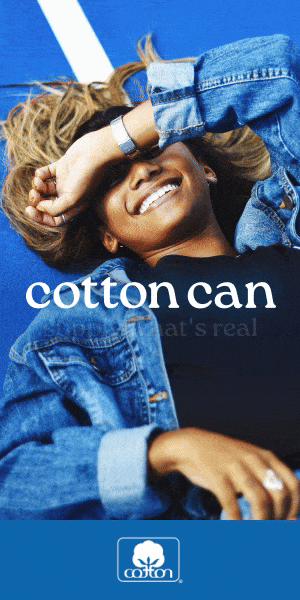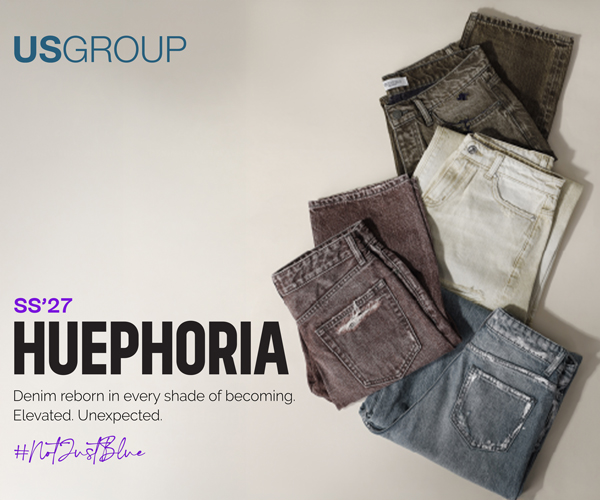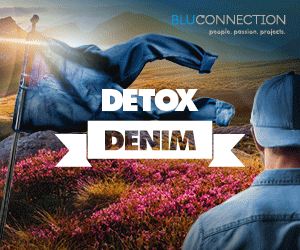Lukas Puender: Collaboration between traceability platforms will be vital

The co-founder of Germany-based digital tracing platform Retraced says fashion companies will soon be held accountable for transparency in their supply chains, and has been working with Pakistani denim producer Artistic Milliners to trace cotton from the field to finished product.
Why did you launch Retraced?
The idea for Retraced resulted from our first start-up, a sustainable shoe brand named Cano. Our ambition was not only to share the story and journey of the products but to be fully transparent about where the materials came from and how they were made. That’s when we realised the need for a tool that would enable fashion brands to know and show their supply chains while being able to share proof.
While we started out focusing on the communication part of sharing the product information transparently with the end-consumer, our platform has evolved dramatically since then. Retraced now is the all-in-one solution for fashion and textile companies to collect data about their supply chains, manage this information, and share it with the consumer and all different types of stakeholders. This can be in the context of regulations like the EU supply chain due diligence law, for example.
At farm level, what extra steps are needed and what reaction have you had from the cotton farmers and ginners?
To allow for consistent traceability in the cotton supply chain, the data collection needs to start on farm level. Therefore, all cotton transported from farm to ginner needs to be recorded and confirmed. With this, we have all cotton flows recorded and can evaluate if the following transactions are consistent.
To ensure that the registration of these transactions does not take too much time for the farmers, Retraced has developed easy-to-use mobile applications and provided clear training. The feedback from the cotton farmers and ginners has been very positive since this empowers them to prove their efforts and ensure fair payment. At the moment, our apps are being used by the farmers and ginners of the Milliner Cotton Initiative and in the future, we are planning to roll it out to more organic and conventional cotton farms.
What is the motivation for farmers to adopt this system?
We have added a simple but effective accounting system, which gives the farmers a clear overview of how much cotton has been sold and how much revenue is generated with this. Costs for buying the seeds or paying employees can be added, as well, allowing for a complete profit and loss statement.
At the same time, we listened to the farmers to ensure easy usability and trained the farmers. Our partner Artistic Milliners pays a premium to farmers that are growing and harvesting higher-quality cotton. Therefore, it is in the farmer's interest that Artistic Milliners knows which cotton is coming from their fields – and this is only possible through the traceability via Retraced.
How are the costs of the system shared by the supply chain (are they)?
The costs of the system are not shared by the supply chain. Only the initiator for traceability needs to pay in our system. This means, if suppliers only contribute data to the platform, they get free access to the Retraced platform. However, interestingly, more and more suppliers decide to join Retraced as paying users because they also want to initiate tracing of purchase orders or want to get a better overview of the compliance standards in their supply chains.
What demand can you see for blockchain and traceability platforms over the coming years, where is the industry heading?
With the enforcement of laws like the German Supply Chain Due Diligence Act and the upcoming EU supply chain law, traceability will become a must-have. Fashion companies will be held accountable, meaning that supply chain steps will have to be proven and violations of the legislation will lead to punishments. This can seem like a great challenge. However, if done right, this can present a huge opportunity for companies to take full control of their supply chains and future-proof their businesses.
It seems that Retraced does not apply a marker, but a QR code on cotton bales: what motivated the decision to avoid using a physical marker on the fibre itself? How secure is a QR code?
We are not against markers and believe they are a great solution to solve certain traceability challenges. In fact, we believe that they are a great extension of the technology we are using as an additional level of security and trust. However, we have experienced that markers are difficult to scale, as they are still quite expensive, and don’t allow you to know exactly from which farm the cotton comes from. The markers are usually applied at ginner level, where cotton from different farms is already mixed together on large heaps. Apart from that, many companies do not know the whole supply chain from the beginning and are not willing to invest that much in traceability. Therefore, we always start to digitally explore the supply chain tier by tier and implement it as a data network along the supply chains.
Can Retraced be used with other traceability systems or platforms?
Technically, yes. Retraced is an open platform and we are very interested in collaborating with other traceability platforms, as this will increase the usability and therefore the value for our clients. We strongly believe that this will be one of our major tasks in the upcoming years, as only those platforms that allow cross-platform transparency will stay relevant in the industry.
What new services does the platform provide for other players in the supply chain?
We are constantly developing the services of our platform. For instance, for our vendor and compliance management, we have developed a risk analysis feature to identify the biggest potential shortcomings in the supply chain to prioritise preventive actions and remediation efforts. This allows companies to move from a reactive to a proactive position and is the basis for complying with the due diligence laws. The requirement catalogues ensure efficient communication between the different supply chain participants and provide an overview of how far the different companies comply with the defined standard and requirements.
How can this platform help brands reach their sustainability goals?
Retraced helps clients with three elemental pillars: Firstly, exploring unknown supply chain participants and connecting to those to gather as much data as possible about the supply chain and its compliance standards. Secondly, overviewing and managing this data to get a good understanding of the current transparency and compliance standard of the supply network to be able to identify gaps and prioritise the next sustainability projects. And thirdly, sharing the data with all relevant stakeholders, such as business partners, governments or even the consumer. It is important to add that we do not only work with brands as clients but also suppliers, such as Artistic Milliners, as the growing compliance standards do not only concern the brands but also their suppliers.
Bio
Lukas Puender co-founded shoe brand Cano in 2016. After completing his MSc in business administration, he and his Cano co-founder, Philipp Mayer, together with former classmate Peter Merkert, started sustainability management platform Retraced in 2018.












